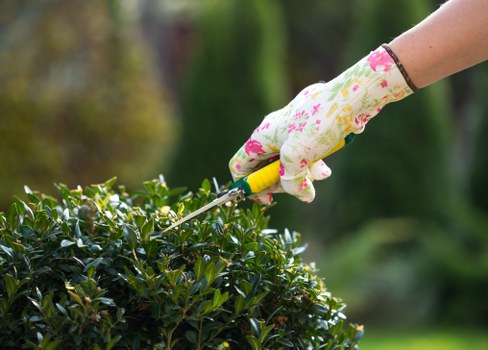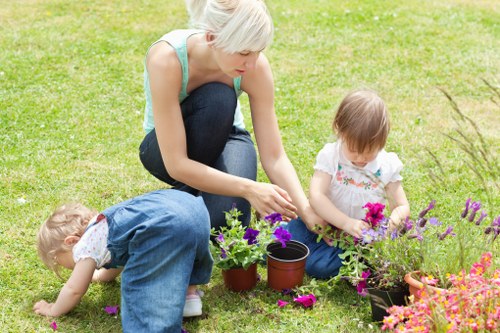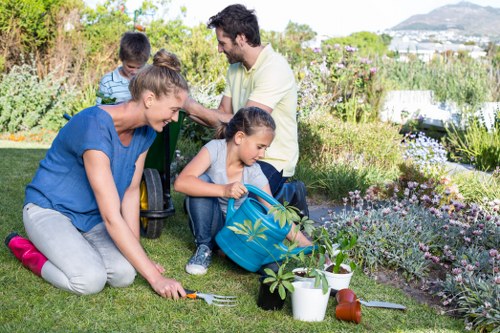Comprehensive Guide to Garden Maintenance in Barking

Maintaining a beautiful garden in Barking requires a blend of knowledge, dedication, and the right techniques. Whether you're a seasoned gardener or a novice, understanding the local climate and soil conditions is essential for ensuring your garden thrives year-round.
**Barking** offers a unique environment for gardeners, with its temperate maritime climate providing ample rainfall and moderate temperatures. This climate is conducive to a wide variety of plants, but it also poses challenges such as soil drainage and pest control.
In this article, we'll explore the best practices for garden maintenance in Barking, covering everything from soil preparation and planting schedules to pruning techniques and seasonal garden care.

Understanding Barking’s Climate and Soil
To achieve a vibrant and healthy garden in Barking, it's crucial to understand the local climate and soil composition. Barking experiences mild winters and cool summers, making it ideal for both deciduous and evergreen plants.
The soil in Barking varies from sandy loam to heavy clay, depending on the specific area. Conducting a soil test can help determine its pH level and nutrient content, allowing gardeners to amend the soil appropriately for optimal plant growth.
Key Factors to Consider:
- **Temperature**: Moderate temperatures allow for a diverse range of plant species.
- **Rainfall**: Consistent rainfall supports lush vegetation but requires good drainage systems.
- **Soil Type**: Understanding whether your soil is sandy, clayey, or loamy informs your planting and maintenance strategies.

Soil Preparation and Fertilization
Proper soil preparation is the foundation of successful garden maintenance. Start by removing weeds and debris, then loosen the soil to improve aeration and drainage.
Amending the soil with organic matter such as compost or well-rotted manure enhances fertility and structure. Regular fertilization, using a balanced fertilizer, ensures that plants receive the necessary nutrients to thrive.
Tip: Mulching not only conserves moisture but also suppresses weeds and adds organic matter to the soil as it decomposes.

Plant Selection and Planting Techniques
Selecting the right plants is crucial for a sustainable garden. Consider native plants that are adapted to Barking’s climate and soil conditions, as they require less maintenance and are more resistant to local pests and diseases.
When planting, ensure that each species receives adequate space to grow. Follow recommended planting depths and spacing guidelines to promote healthy root development and air circulation.
Popular Plant Choices in Barking:
- **Perennials**: Offer year-round beauty with minimal maintenance.
- **Shrubs**: Provide structure and serve as a backdrop for other plants.
- **Trees**: Enhance the landscape and offer shade and habitat for wildlife.

Watering and Irrigation Strategies
Effective watering is vital for garden health, especially during the dry seasons. Implementing an efficient irrigation system, such as drip irrigation or soaker hoses, reduces water wastage and ensures consistent moisture levels.
Watering early in the morning minimizes evaporation and allows plants to absorb moisture before the heat of the day. It's important to adjust watering schedules based on seasonal changes and rainfall patterns.
Water Conservation Tips:
- Collect rainwater for garden use.
- Use mulch to retain soil moisture.
- Choose drought-resistant plant varieties.
Regular monitoring of your garden's health can prevent many common issues. Look out for signs of nutrient deficiencies, pests, and diseases, and address them promptly to maintain a thriving garden.
Pruning is another essential aspect of garden maintenance. Correct pruning techniques promote plant growth, enhance air circulation, and improve the overall appearance of your garden.
Pro Tip: Invest in quality gardening tools to make tasks like pruning and trimming more efficient and effective.
Seasonal care ensures that your garden remains in peak condition throughout the year. Spring preparation involves clearing debris and preparing beds for new plantings, while autumn focuses on protecting plants from the cold and preparing for the winter months.
In winter, consider using protective covers for sensitive plants and continue to monitor for pests that may seek shelter in your garden.
Seasonal Maintenance Checklist:
- **Spring**: Soil preparation, planting, and fertilization.
- **Summer**: Regular watering, weeding, and pest control.
- **Autumn**: Leaf removal, pruning, and preparing for winter.
- **Winter**: Protection of plants, tool maintenance, and planning for the next season.
Professional garden maintenance services in Barking can provide expert advice and comprehensive care, ensuring your garden remains beautiful and healthy with minimal effort on your part.
Benefits of Hiring Professionals:
- Expert knowledge of local gardening conditions.
- Access to specialized tools and equipment.
- Time-saving and efficient maintenance practices.
Whether you need a one-time service or regular maintenance, professionals can tailor their services to meet your specific needs and preferences.
Investing in your garden's maintenance not only enhances its aesthetic appeal but also contributes to the overall health of the environment. Well-maintained gardens support local biodiversity, improve air quality, and provide a peaceful sanctuary for relaxation.
Conclusion: Effective garden maintenance in Barking involves a combination of understanding local conditions, selecting appropriate plants, and implementing consistent care practices. By following the guidelines outlined in this article, you can create and maintain a stunning garden that thrives year-round.
Ready to transform your garden? Contact us today to book your garden maintenance service and enjoy a beautiful, healthy garden without the hassle.

